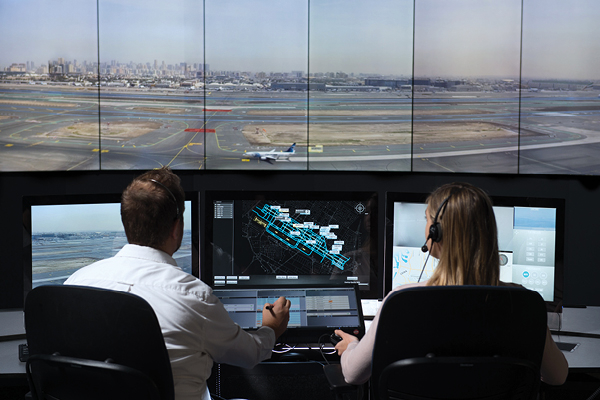Time to recognise our resilience – a message from Simon Hocquard

As we near the end of the year, travel restrictions have once again returned as the world grapples with a new variant of COVID. This came after a period of continued growth where traffic around the world had returned to the level of our last industry low in 2008. While there is still some way to go to reach the heights of 2019, this was a real sign that the recovery was gathering pace, and shines a light on the resilience of our industry.
If there’s one thing that the past 18 months has taught us – it’s the incredible ability of individuals, organisations and industries to move forward in the face of adversity. For me, that’s the very essence of resilience – our ability to stand strong in the face of the toughest of challenges, to learn from our experiences and to grow stronger.
There have been winners and losers of our industry’s crisis but those that survived and even thrived had some things in common. Their secret formula for weathering the storm? Three things – preparedness, innovation and agility.
Organisations that constantly scan the environment for potential disruptions are those most likely to bounce back better when the inevitable happens. Anticipating and preparing for potential pitfalls and thinking through the actions you will take, is a strategy applied by many of the world’s most resilient organisations
Of course it’s impossible to prepare for every eventuality. Who would have predicted a global pandemic? Or a volcanic ash cloud that would sit over parts of Europe grounding aircraft for a week? While we might not have predicted the events themselves, what is predictable about them is the unpredictability of the disruption you will face.
But considering how you will respond to such a disruption, no matter what the cause, will stand you in good stead. There will be a set of common-sense questions you could ask that could help improve your preparedness. Disruption is unsettling but the more prepared you are, the better
As well as preparedness, I would also argue that having a healthy interest in innovation boosts your resilience. Organisations that naturally embrace new technologies found themselves fairing better when COVID-19 first struck
The pandemic accelerated change, and innovation became a lifeline that enabled us to provide services in a different way, protecting both our staff and our businesses.
Early adopter Air Navigation Service Providers that had invested in remote towers were able to take advantage of them to keep their operational teams separated and safe at the peak of the crisis. The same is true for those organisations that had embraced home working, remote training and simulation, and the sharing of knowledge and best practice virtually. They found themselves on the front foot when the pandemic first began.
So a penchant for innovation is a key success factor, as is agility. Throughout the pandemic we’ve become adept at adapting to change. With the uncertainty of traffic peaks and troughs, ANSPs had to be ready to accommodate shifting demand, equipping their operation and people to handle big swings in traffic. In fact, many became good at it. We need to mirror this agility and responsiveness to change in other areas of our business
That might sound simple, but it doesn’t come naturally to an industry that’s built on a bedrock of a century of safety with well-trodden processes and pathways. The pandemic has been a catalyst for change and we’ve been forced to adopt new ways of doing things much faster than ever before. We need to continue to seize the opportunity to adapt swiftly even when we’ve beaten this virus
We have some big challenges ahead… not least reducing aviation’s carbon footprint and safely integrating new airspace users like unmanned vehicles and commercial spacecraft into our skies. As an industry that has historically focussed on efficiency and strict processes and structures, in the post-pandemic world this rigidity could make our organisations more fragile.
In the future we should focus more on building resilient, sustainable and agile organisations. This might mean focusing on making sure we have the right resources, talent and work design that will enable us to respond to these continuous changes. We should take a leaf out of the book of disruptors to our industry – like unmanned aviation – and become more agile.
The future will definitely bring change, and we should be ready for it. Building on our resilience will help.



